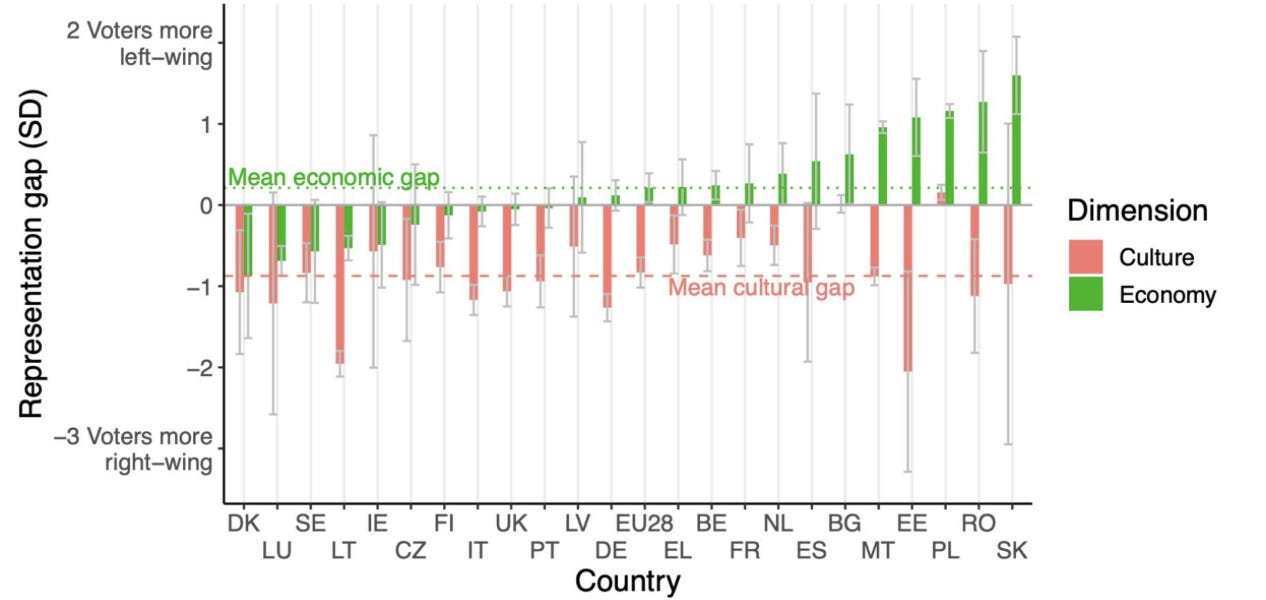I’ll be at the Abundance DC conference next week. I’ll be busy, but if you think we should meet, let me know if you’re going to be there. I will be attending with a press pass, which is the first time I’ve ever gotten one of these (first time ever applying for one), so I guess I am officially the media now. There’s this crazy woman who is supposedly a comedian of some sort who thinks I’m running the Abundance movement, so I can’t wait to see her response when I arrive and they all start carrying me around on their shoulders.
I recently interviewed the academic Laurenz Guenther for the CSPI podcast about his recent paper on immigration and the rise of populism. Subscribe to CSPI in order to get new content from there. It provides more academically focused discussions than you get on this newsletter, if you’re into that sort of thing.
I also just talked to Johanna Maska, who was an aide to President Obama. She is such a great person, and if I may say so, we provided a model on how to disagree civilly. You’ll learn something here that is easy to forget. I’m pretty right-wing! It’s just you have to be a dumb conspiracy theorist now or you’re left coded. I also enjoyed joining my friend Noam Dworman at The Comedy Cellar to discuss mostly Israel, but also other things too. I have a friend in comedy now, other than Bryan Caplan, which is pretty cool. Maybe I should follow Bryan and do standup one day.
1. Here’s a discussion of the Guenther paper I wrote before conducting the interview above:
Laurenz Guenther looks at surveys of politicians and residents across European countries and finds a one standard deviation gap in cultural views. This is bigger than the gaps between any demographic groups. On economic issues, politicians are more pro-market in a small majority of cases, but almost as often more left wing.
Countries where politicians are the most pro-market: Slovakia, Romania, Poland, Estonia, Malta
Where politicians are more pro-statist than the masses: Denmark, Luxembourg, Sweden, Lithuania, Ireland
Interesting pattern where it is Eastern Europe where elites have the best views relative to the public, while Scandinavia is the opposite. Check out Estonia! Very libertarian politicians. No wonder it has done so well in the post-Soviet era. This provides deeper support for my article "Elite Human Capital Is Always Liberal." I used different methods and surveys to come up with the same results.
The idea that "Compared to the public, elites are practically always more liberal on social issues," appears to be settled social science. Guenther’s work can be read as a call for elites to cut down on immigration to stop populism from rising. This article shifted my views a bit towards the “it’s all immigration" thesis instead of the “it's a combination of immigration, conspiracy theorizing, and general social conservatism” idea that I held before. One problem with the paper is that he keeps implying this is simply an issue regarding politicians not being representative of the masses. No, it's every group of people that is highly educated and thinks a great deal about ethics and public policy issues. You'd get if anything an even greater gap if you compared the public to scientists, activists, professors, or any other group of non-business elites.
He notes that the gap is mitigated but remains when you compare politicians to the 7% of residents who got a perfect score on questions of political knowledge. But these are strange questions, a mix between ones that are obscure and ones that are really easy. I think there's a kind of interactive effect where people who think carefully about issues even in isolation are more libertarian than the public, and are pushed even more in that direction when they go into meaning-maximizing fields. At the same time, those with non-libertarian views select out of these careers. This would explain the results we see.
2. Absolutely loved this ACX book review on Joan of Arc. I consider this type of evidence for the existence of God, based on historical accounts from before the modern era, to be quite weak. But she was remarkable regardless and I’m glad to have become familiar with her story.
3. Been reading quite a bit on Alberto Fujimori, the Japanese-descended president of Peru from 1990-2000, who dissolved the parliament in 1992 and then ruled with a heavy hand until he was finally hounded out of office after winning what many saw as an illegitimate third term.



